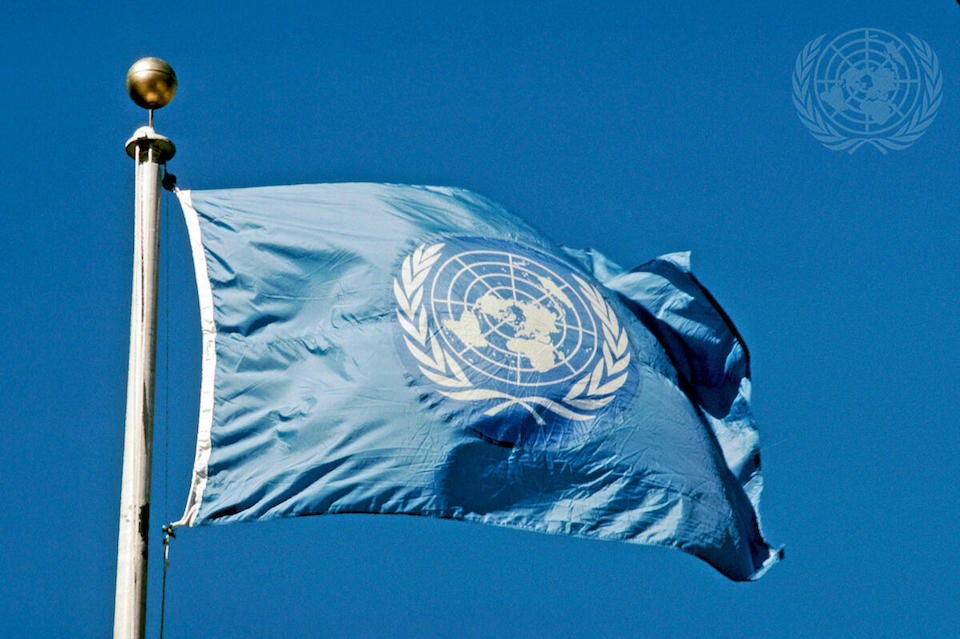Meeting global humanitarian needs in 2021
UK Statement and Explanation of Vote at the UN General Assembly Plenary Session on Humanitarian Affairs

2020 has been a year like no other.
Many have tragically died and fallen ill as a result of COVID-19 and the virus has triggered a global recession not seen since the 1930s. We risk losing decades of human progress. Extreme poverty is rising for the first time in over 20 years.
And, as the UN’s Global Humanitarian Needs Overview for 2021 laid out in stark terms, 235 million people are in need of humanitarian assistance. That’s 1 in 33 people across the globe.
But the story of 2020 is not just about COVID-19. The main drivers of humanitarian crises have not gone away.
Conflict continues to take a heavy toll on civilians and violence against humanitarian workers remains rife. The impact of climate change and weather-related disasters continues to grow. The most vulnerable, including women and girls, are being hit hardest.
As a result, we are now facing the daunting prospect of famine and acute food insecurity in multiple contexts. The UK is particularly worried about the risks in Burkina Faso, Nigeria, South Sudan and Yemen.
As we look ahead to 2021, how do we meet the humanitarian needs of 235 million people? How can we slow increasing funding requirements? And how can we support humanitarians in field?
The UK remains committed to the global humanitarian cause. In September we appointed our first Special Envoy on Famine Prevention and Humanitarian Affairs. His immediate focus is building the necessary alliances to drive up levels of humanitarian funding and to develop political solutions to prevent the most acute food security crises.
The UK continues to be a leading humanitarian donor. We have provided $1.8 billion over the course of 2020. And in the last week alsone, we announced almost almost $90 million in funding for the CERF and $18 million to Yemen.
It is no secret that budgets are under pressure around the world. But it is staggering that the top ten donors account for 83% of humanitarian funding. Words are not enough. Major economies, outside of that top ten, need to step up.
The trajectory of ever-increasing funding needs, $28.8 billion needed at the start of 2020 leaping to $35 billion for 2021, simply isn’t sustainable. So we need to be better at anticipating crises. Investing in a more proactive response to avert humanitarian crises could reduce the cost by as much as 30%. This means using early warning analysis and data more effectively, but crucially ensuring data is linked to plans in advance of crisis and tied to practical early action.
But a humanitarian response alone is not enough. Humanitarian crises require political solutions. We need to ensure that the UN is making the full use of all the levers at its disposal – development, peace and political actors all have role to play in preventing crises.
We also need to ensure humanitarian assistance reaches those in need – and is not obstructed or frustrated – and that civilians and civilian objects are not the targets of violence. International Humanitarian Law must be respected and we need to unequivocally support the humanitarian principles of humanity, neutrality, impartiality and independence. A weakened normative framework helps no one.
Mr President, amid these unprecedented challenges, I want to finish by celebrating the successes of the international humanitarian community and, indeed, the successes of multilateralism.
Humanitarian workers, at great personal cost and risk, have adapted and innovated to ensure the delivery of aid and services to 98 million people worldwide. And I congratulate the World Food Programme on receiving the Nobel Peace Prize for their commitment to tackling global starvation.
These are extraordinary achievements that we must all build on to overcome the grave challenges we will face in 2021. On this basis, we offer our full support for consensual adoption of the resolutions before us today.
Thank you.
Explanation of Vote at UN General Assembly Plenary Session on Humanitarian Affairs
Mr President, the United Kingdom is grateful to facilitators for their leadership on the draft resolutions before us and we welcome the approach taken not to re-open the text.
We would like to express our disappointment at the calling of a vote by the United States that seeks to delete agreed language on access to sexual and reproductive health services.
The UK is unwavering in its commitment to gender equality and sexual and reproductive health and rights for all and we are concerned about the repeated attempts to pushback against these long-standing rights.
The UK is concerned by attempts to curtail access to sexual and reproductive health services for women and girls, particularly as access to these vital services have been diverted during the COVID-19 pandemic response.
Sexual and reproductive health services are often life-saving, and women and girls affected by conflict and crisis need sexual and reproductive health services more than ever. These needs are particularly acute in crisis, conflict and humanitarian settings.
Sexual and reproductive health and rights – which includes access to quality, comprehensive health services – are critical to the empowerment of women and girls everywhere. We will not achieve the Global Goals if we do not ensure all people have access to and can realise their sexual and reproductive health and rights.
So it is essential that the international community reaffirms its long-standing resolve to defend and implement its commitments on gender equality and the rights of women and girls. We cannot accept this attempt to walk back previously agreed language. And this is why the UK will vote in support of the paragraphs on which a vote has been called and we urge all member states to do the same.
Thank you.